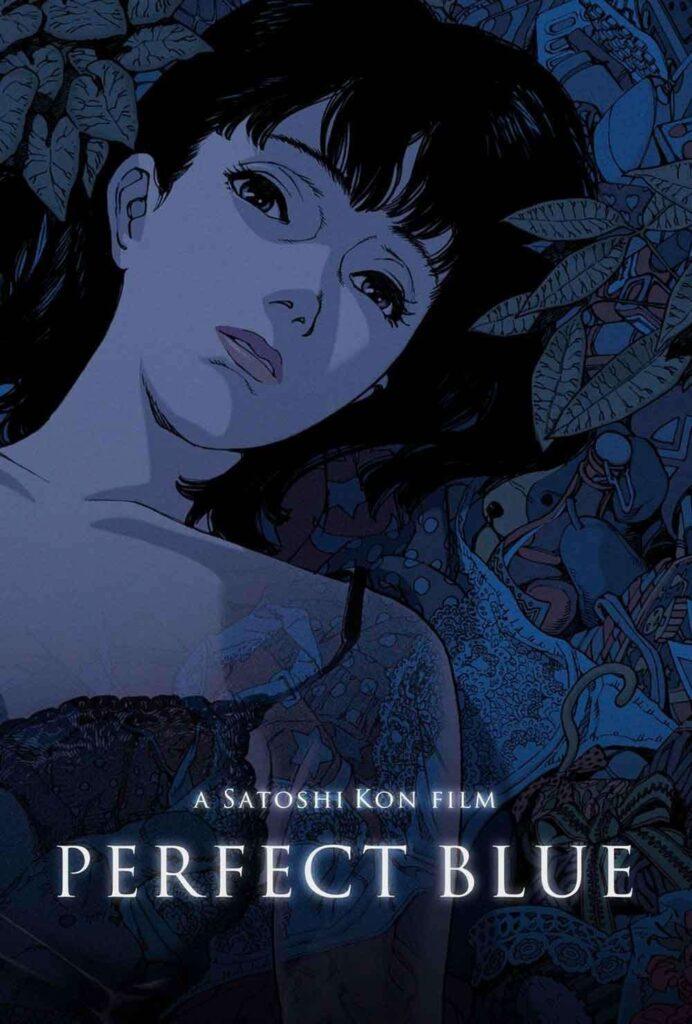Perfect Blue
Directed by: Satoshi Kon
Genre: Psychological Thriller, Drama, Horror
Runtime: 81 minutes
Studio: Madhouse
Introduction
Perfect Blue is a haunting psychological thriller that delves deep into the blurred lines between identity, reality, and illusion. Directed by visionary filmmaker Satoshi Kon, the film follows a former pop idol whose descent into madness mirrors the dark side of fame and media obsession.
Plot Summary
⭐ The Idol Turned Actress
Mima Kirigoe is a popular member of the J-pop girl group CHAM! But yearning for a more serious career, she quits the idol world to become an actress. Her decision shocks fans, especially a stalker known as Me-Mania, who sees her as a pure, untouchable figure.
Mima lands a role on a crime TV drama called Double Bind, but her transition is far from smooth.
😨 Down the Rabbit Hole
In her pursuit of acting fame, Mima agrees to do a controversial rape scene and later a nude photoshoot — both of which deeply affect her. As she sheds her innocent image, a website called “Mima’s Room” appears, written from the perspective of a version of herself that still believes she’s a pop idol.
Worse, Mima begins to see hallucinations of this idol version — bright, cheerful, and judgmental — causing her to question her own sanity.
🔪 A Trail of Murders
Soon, people connected to Mima’s career shift start dying:
- The screenwriter who wrote her disturbing scene is murdered.
- A photographer from her photo shoot is brutally killed.
Mima spirals, unsure if she herself is committing the murders during blackouts, or if someone else is behind it all.
🧠 The Shocking Truth
Eventually, Mima discovers that Rumi, her former manager and a retired idol, is the one impersonating her online and committing the murders. Unable to accept Mima’s transformation, Rumi mentally regressed into believing she was the “real” Mima.
In a chilling final confrontation, Rumi tries to kill Mima while fully dressed as her idol persona, hallucinating all the while. Mima narrowly survives and has Rumi institutionalized.
🌅 Finding Herself Again
The film ends with Mima visiting Rumi in the hospital. When a nurse mistakes her for someone else, Mima confidently says, “No, I’m real.” It’s a powerful moment of self-acceptance, showing she has finally reclaimed her identity.
🎥 Themes & Symbolism
- Identity Crisis: Mima’s dual selves represent the pressure to conform to public expectations versus personal growth.
- Media Exploitation: Her trauma stems from how the entertainment world commodifies and distorts young women’s images.
- Obsession & Stalking: Me-Mania and the “Mima’s Room” site embody the dangers of toxic fandom and invasive celebrity culture.
- Blurred Reality: The film constantly shifts between dream, memory, and fiction — keeping both Mima and the viewer unsteady.
💬 Final Thoughts
Perfect Blue is a gripping descent into the dark psyche of fame, perception, and mental collapse. It’s often cited as a major influence on films like Black Swan and Inception, and remains one of anime’s most disturbing yet profound masterpieces.
If you’re a fan of psychological thrillers with a chilling edge, Perfect Blue is a must-watch.



